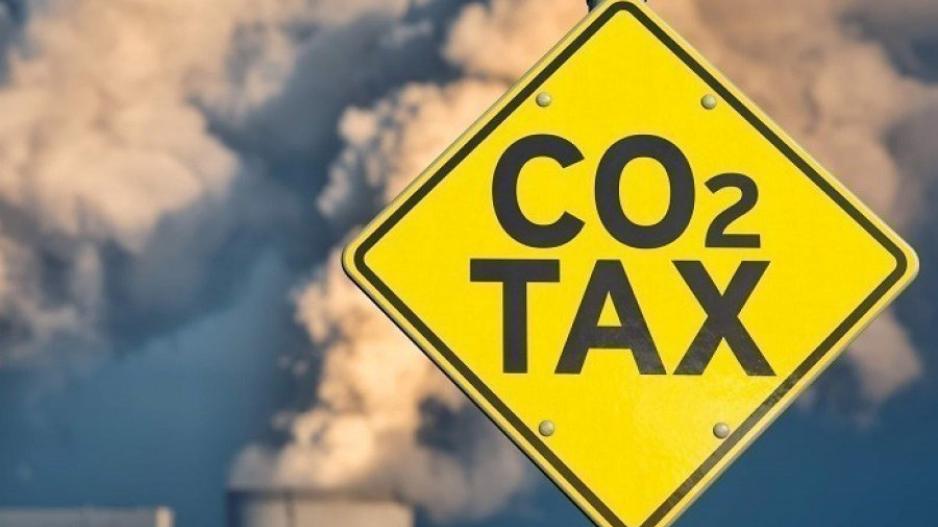IMF Predicts Carbon Tax Will Raise Prices, Lower Revenues, But Stresses It's Necessary
The International Monetary Fund Emphasizes the Urgent Need for a Carbon Tax, Despite Its Economic Impacts, as a Crucial Measure to Tackle Climate Change.
The International Monetary Fund (IMF) provides revealing insights into the carbon tax that Cyprus is obligated to apply as part of its commitments to the EU. In its latest report on Cyprus, the IMF states, "The state will face losses as revenues from VAT, existing fuel taxes, and the new carbon tax will decrease."
The report notes, "Higher carbon prices reduce the demand for carbon-intensive goods and services, shrinking the tax base and, as a result, lowering revenues both from the new tax and from existing fuel taxes and VAT."
The carbon tax is imposed on carbon dioxide emissions required for the production of goods and services. Due to its imposition, product prices rise. As a result, demand for such goods and services decreases, while actions to further reduce carbon dioxide emissions are encouraged.
According to the IMF report, "The carbon tax may also create a temporary impact on growth. As with any fiscal measure, there will be a short-term effect on aggregate demand, which depends on the cyclical position of the economy, the overall fiscal stance, and most importantly, how the related tax revenues are used."
Furthermore, the report emphasizes that "adjustment costs arise from changes in relative prices, as households and businesses turn to cleaner fuels or technologies."
The EU, supported by the IMF, asserts that "green tax reform will bring Cyprus closer to its emission reduction targets, as higher carbon prices work through two channels to reduce emissions: the extensive margin, which reduces carbon consumption and carbon-intensive goods (for example, fewer cars and less driving); and the intensive margin, which encourages higher energy efficiency and the transition to low-carbon technologies (faster adoption of electric vehicles). The strength of these two channels affects the elasticity of demand for emissions."
The report also highlights that:
- First, for Cyprus, as with other developed countries, elasticity is generally estimated to be lower than the global average.
- Second, the tax reform is expected to reduce emissions by an additional 55,000 tons of CO2, or 3.8% of projected WAM emissions by 2030. However, it believes that "the tax will increase additional revenues but will also accelerate the depletion of the tax base. The tax is expected to yield 0.1-0.2% of GDP annually by 2025, rising to 0.4% of GDP from 2028 onwards."
"The increase in gross revenues resulting from the higher rate per unit of carbon is estimated to reach 0.5% of GDP," the report explains.
It also notes that "there may be growth impacts," emphasizing that "as with any fiscal measure, there will be a temporary impact on aggregate demand depending on the cyclical position of the economy, the overall fiscal stance, and, most importantly, how the related tax revenues are used." "There will also be adjustment costs associated with changes in relative prices, as households and businesses turn to cleaner fuels or technologies," it adds.
Using a set of assumptions about the size of the fiscal multiplier, adjusted for global income groups and country-specific parameters, the IMF highlights that "the direct impact is estimated to reduce annual growth by 0.1-0.2 percentage points at its peak in 2029 - 2031, excluding any offsetting impact from revenue recycling."
It believes that "rural households are expected to be more affected than urban households, reflecting a higher budget share for fuel."
In conclusion, the report states that "a limited amount of revenue recycling is required to mitigate the immediate negative impact on low-income groups. While the tax reduces consumption proportionally across all income levels, it remains important to offset the impact on consumption for lower-income groups, who have fewer financial reserves, to ensure a fair climate transition."






